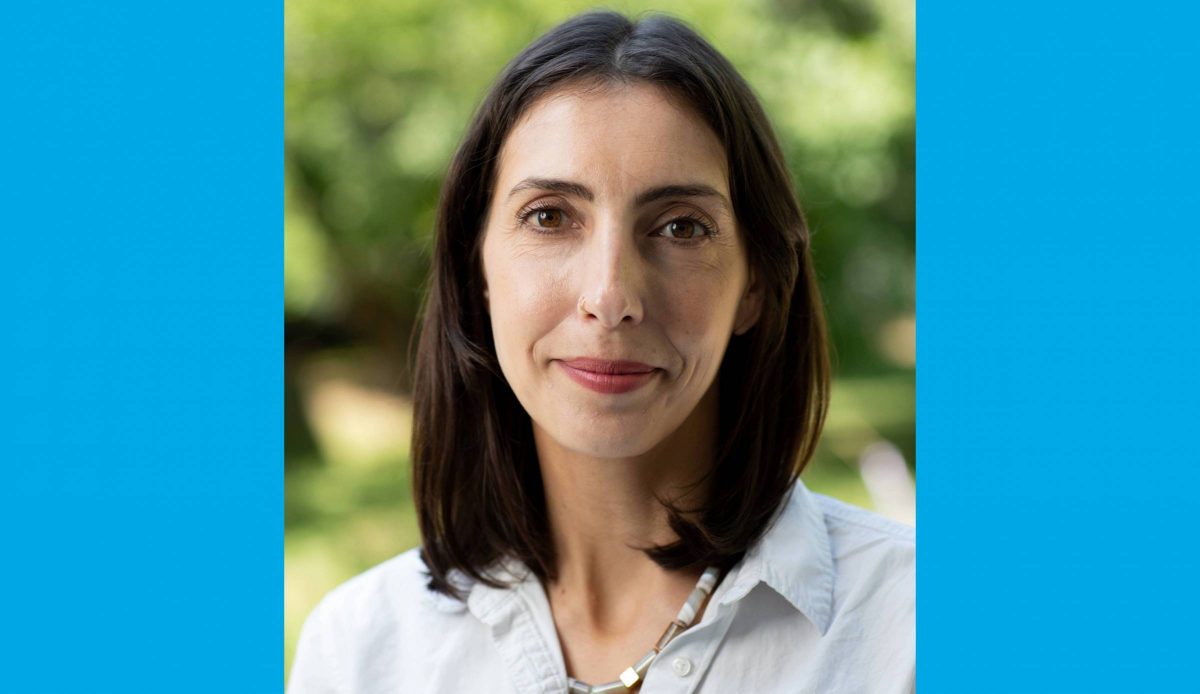
Dr. Leslie E. Roos 2023 recipient of the Terry G. Falconer Memorial Rh Institute Foundation Emerging Researcher Award in the Social Sciences category.
Meet Leslie E. Roos, 2023 Rh Award Winner in the Social Sciences category
Leslie E. Roos, an associate professor in the Department of Psychology, focuses her research on improving access to mental health support for families through scalable and accessible programming.
Roos is the 2023 recipient of the Terry G. Falconer Memorial Rh Institute Foundation Emerging Researcher Award in the Social Sciences category, in recognition of her innovative work in developing family-centered mental health interventions and her contributions to promoting mental health equity.
UM Today caught up with Roos to learn more about her and the research she is undertaking.
Tell us a bit about yourself and your research.
I’m an associate professor in psychology, and I also work in pediatrics and as a clinical scientist at the Children’s Hospital Research Institute of Manitoba. Across roles, my major goal is to increase access to mental health support services for families, so they can live fulfilling lives.
My research focuses on scalable, accessible mental health programming, recognizing the various barriers families face, such as transportation, waitlist and finding the right fit. We develop programs in collaboration with families and community members to increase access, combining in-person and e-health interventions to reach more families.
Why is this research important?
Every family deserves access to mental health support that aligns with their values and identity. Our research aims to empower parents with tools to find fitting services.
Globally, there’s a significant gap between the need for mental health services and access to them, with 20-50 per cent of those in need not receiving adequate care. Our goal is to create scalable programs to reach more families and reduce the burden on intensive services, ultimately shortening waitlists and improving access to higher-intensity care when needed.
What does the Rh award mean to you?
The Rh award is a significant honour, and I appreciate the recognition of our mental health work, which intersects social and health sciences. Since the pandemic, there’s been more attention to the importance of mental health.
This award allows us to expand our programs and their reach, both within our community and potentially on a national and international level, elevating the impact of research developed in Manitoba.
What about you might people find surprising?
I was certain for years that I wanted to be a marine biologist and did extensive work in that area. But then I realized I like people too much, and talking to people on a daily basis was really important for my own wellness, which led me to shift my interest to psychology, even though I still think marine biology is really cool.
Any advice for early career researchers and students?
Focus on community in your work, understanding your purpose and values. Don’t hesitate to seek mentorship and ask for support. People are often willing to share their experiences, grant examples and advice. There’s a lot of hidden knowledge that you can gain from others.
Research at the University of Manitoba is partially supported by funding from the Government of Canada Research Support Fund.






